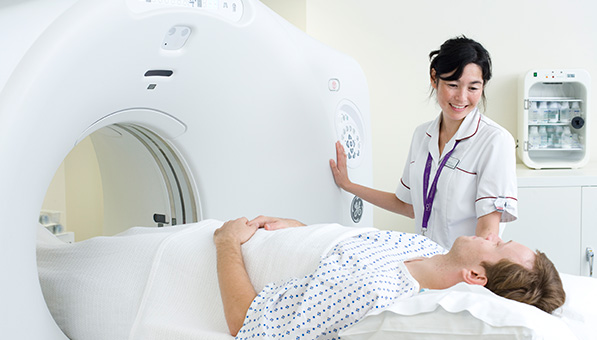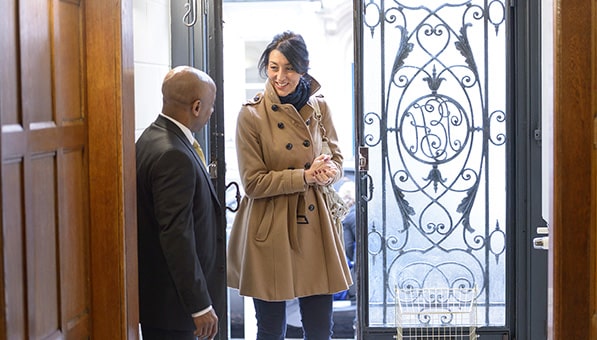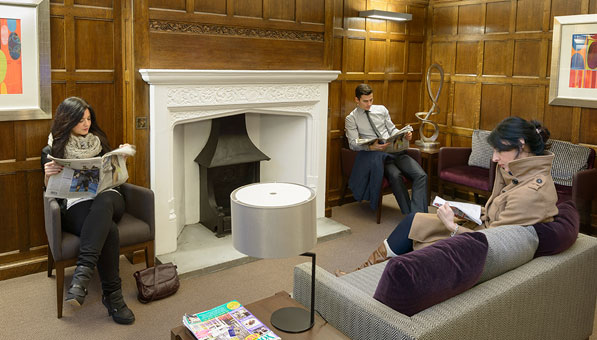Scar Treatment London
Our qualified dermatologists provide a range of scar treatment options to help minimise and reduce the appearance of scars. Consultations and treatments are conducted at our private clinic in the Harley Street medical district of London
What Is Scar improvement?
When your skin heals itself after suffering from active acne, or an injury, such as a burn or abrasion, a mark is often left in the form of a scar. Scarring is a normal part of the body’s defensive reactions – your white blood cells rush to the wound to fight off infection, producing new collagen fibres that hold the skin together during the process. These collagen fibres are what we call scars.
Scars, even small ones, can make you feel uncomfortable and self-conscious. Concealing and camouflage make-up can help but you may also wish to have some treatment to lessen the impact of the scar.
Benefits if you choose us to treat your scars:
- Scar reduction to improve the appearance of your skin
- Extensive experience and advanced treatment techniques
- Access to the latest combination of topical products, injectable treatments, surgery and laser technology for effective scar reduction
.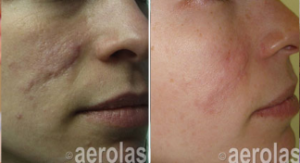
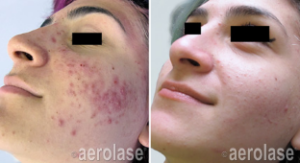
Enquire about
Scar Treatment London
Steroid injections
A raised scar such as a hypertrophic or keloid scar can be treated using many mini injections containing corticosteroids. These are placed in the scar to reduce inflammation and flatten the scar. Our consultants will repeat the injections every four weeks or so, monitoring the appearance of the scar.
You may require multiple scar treatments over several months to achieve the desired result. However, some patients fail to respond or experience recurrence after treatment.
Topical treatments
Silicone gel sheets – these are often used with pressure dressings but need to be in place for 12 hours a day. They are particularly good at preventing and reducing keloid and hypertrophic scars.
Alternatively, silicone gels such as Kelocote® may be used. These are also very effective at reducing the appearance of hypertrophic and keloid scars.
Scar treatment with lasers
Our consultants have access to many different types of laser, some of which can be used to reduce the appearance of scars. Aerolase Nd:YAG laser can target the small blood vessels around a scar that make it look very red.
Some of the techniques we use are also employed in our cosmetic dermatology treatments. Laser re-surfacing is particularly effective for certain types of scars. The top layers of skin peel away and the laser acts on the dermis to stimulate collagen production. These two processes expand the tissues within the scar, raising it to the level of the surrounding skin.
Fillers
Dermal fillers can provide a temporary improvement in the appearance of pitted scars, but the effects tend to wear off after a few months. Repeat treatments can be effective.
Skin needling
Our consultants can use skin needling devices, which can also stimulate collagen production within the deeper layers of skin to help treat pitted scars. A safe, minimally invasive treatment effective for reducing scars.
SkinPen Precision is a leading skin remodeling device that creates temporary small microscopic channels in your skin.
This simple procedure activates your body’s natural skin-healing power to increase collagen and elastin so your skin returns to a healthier looking and youthful appearance.
Surgical scar revision
Plastic surgery techniques are sometimes required for patients with scars on the body due to trauma, burns, skin grafts or other surgery.
If the original wound site has healed forming a very obvious scar, it is sometimes possible to perform surgery to reopen the wound and then reclose it in a more favourable way.
Healing takes several weeks then several months of after care are required before the full final effect can be seen.
Frequently Asked Questions Laser Scar Treatment
Treatments can address various types of scars, including:
-
- Acne scars (boxcar, icepick, rolling scars)
- Hypertrophic scars (raised, thick scars)
- Keloid scars (excessively raised scars that extend beyond the original wound)
- Contracture scars (from burns or injuries)
- Surgical or injury scars
Effective treatments for acne scars include laser therapy, microneedling, chemical peels, and dermal fillers. The best option depends on the type and severity of the scars.
Scar improvement refers to treatments designed to minimise the appearance of scars caused by injury, surgery, acne, or other skin conditions. While complete removal may not always be possible, treatments can significantly reduce the scar’s visibility.
Treatments can significantly reduce a scar’s visibility, but complete removal may not always be possible. The effectiveness depends on factors such as scar type, age, and individual skin characteristics.
For best results, scar treatment should begin after the wound has fully healed, usually 6–12 weeks after the injury. Early intervention can often yield better outcomes.
The number of sessions depends on the scar type and treatment method. For example:
-
- Laser treatments may require 3–6 sessions.
- Microneedling might need 4–8 sessions.
- Topical treatments may take months for noticeable results.
Many scar improvement treatments involve minimal discomfort. Topical anaesthetics or numbing agents are often used during procedures like laser therapy or microneedling to ensure comfort.
While over-the-counter creams and silicone gel sheets can help reduce minor scars, professional treatments are often needed for more significant scars. Always consult a dermatologist for guidance.
Yes, even older scars can be treated, though the results may take longer to achieve. Newer scars often respond more quickly to treatments.
Laser treatment can reduce the appearance of acne scars, making a noticeable difference over time, and it’s excellent for treating mild to moderate scarring. Unfortunately, severe scarring caused by acne never completely disappears. That’s why it’s essential to maintain good control of your acne to avoid further scarring.
You’ll be able to discuss your treatment, including the results you want to achieve, during your first appointment with your consultant dermatologist at The Devonshire Clinic. They’ll be able to tell you how much the acne has damaged your skin and what results you can expect. For example, they might advise you to have more than one type of therapy to get the best results.
Yes, laser treatment for acne scarring can be used on other areas of your body, such as your back,
chest, and shoulders, as well as your face. The treatment works best on shallow scars or scars of
medium depth. For deeper scars, you might need surgery (known as subcision) and/or dermal fillers.
Possible side effects include redness, swelling, irritation, or temporary skin discolouration. These effects typically subside within a few days to one week. A dermatologist will provide aftercare instructions to minimise risks.
Available Scar Improvement/Reduction Treatments
Fractional Laser Skin Treatments, Harley Street, London
Laser treatments have been used in cosmetic dermatology for many years. The principle is that the energy from a car[...]
Read MoreWhy use the Devonshire Clinic?
Effective scar treatment requires expert input from experienced professionals. Our Consultant Dermatologists and Plastic Surgeons are highly qualified experts who are acutely aware of the emotional impact that scars can have. If you would like to discuss your concerns with us, call the clinic today and book an appointment with one of our specialists.
